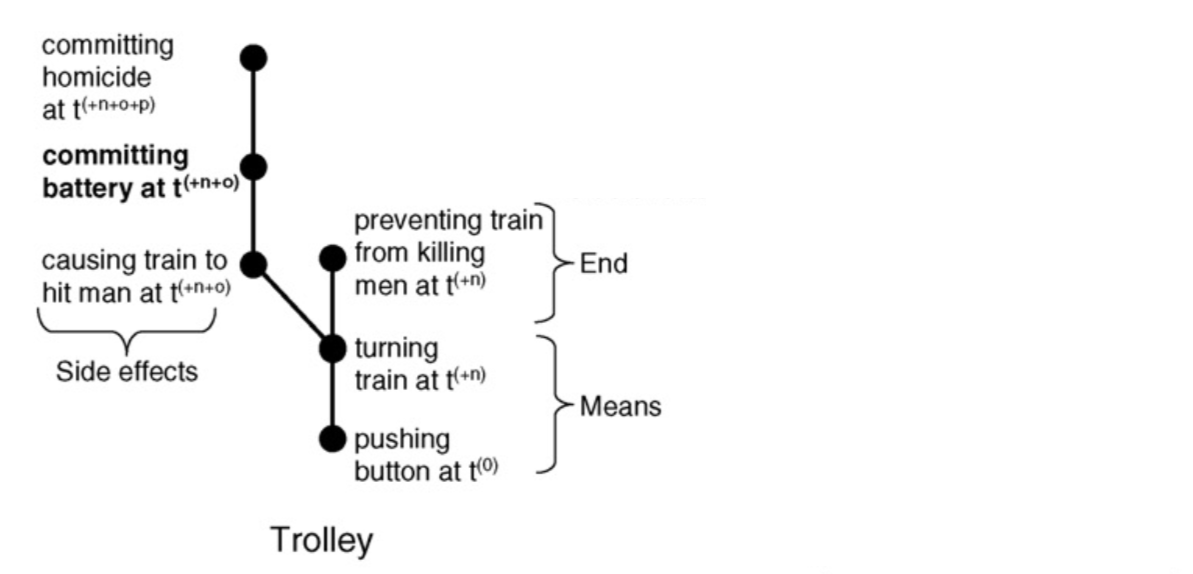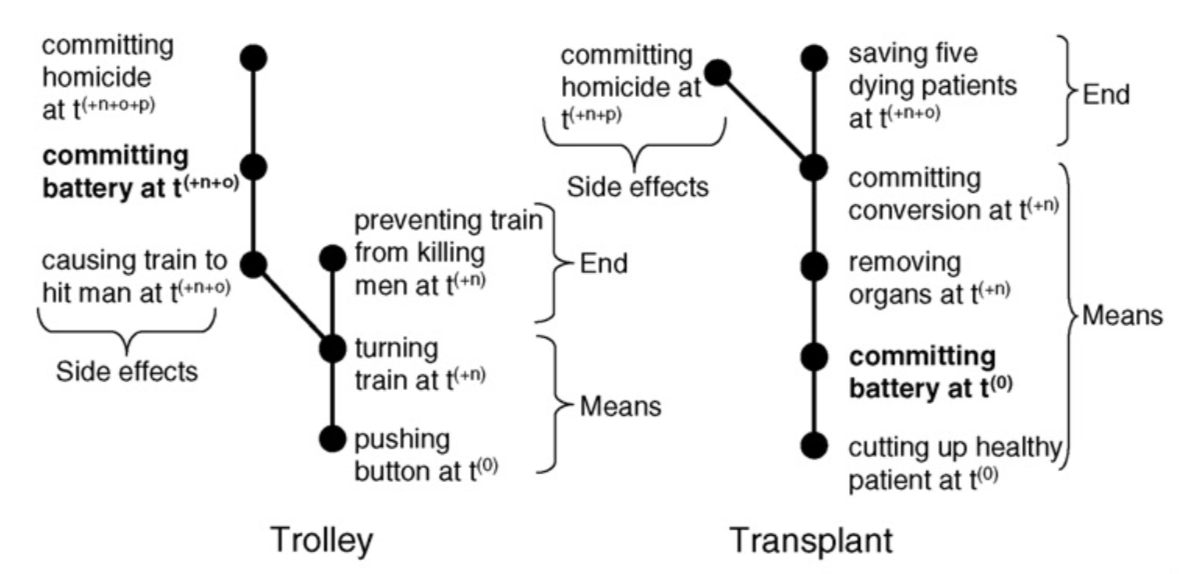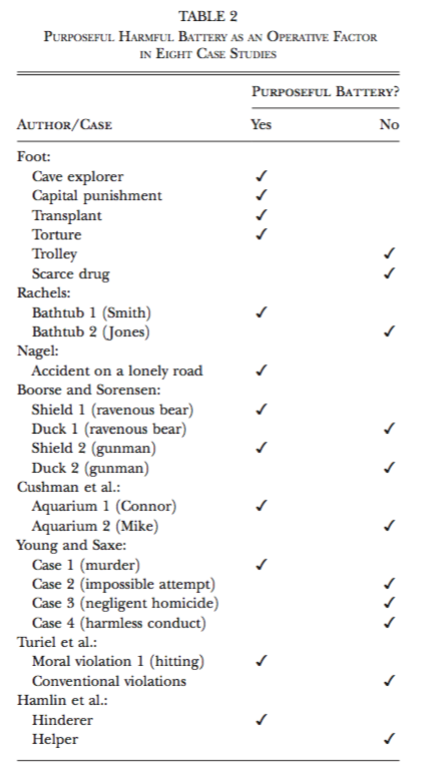Click here and press the right key for the next slide.
(This may not work on mobile or ipad. You can try using chrome or firefox, but even that may fail. Sorry.)
(If the slides don’t work, you can still use any direct links to recordings.)
also ...
Press the left key to go backwards (or swipe right)
Press n to toggle whether notes are shown (or add '?notes' to the url before the #)
Press m or double tap to slide thumbnails (menu)
Press ? at any time to show the keyboard shortcuts
Mikhail’s Insight: Structure and a Linguistic Analogy
Do humans have a language ethics module?
1. ‘adequately specifying the kinds of harm that humans intuitively grasp requires a technical legal vocabulary’
Therefore:
2. The abilities underpinning unreflective ethical judgements must involve analysis in accordance with rules.
Mikhail, 2007
Trolley
A runaway trolley is about to run over and kill five people. You can hit a switch that will divert the trolley onto a different set of tracks where it will kill only one.
Is it okay to hit the switch?
Trolley
A runaway trolley is about to run over and kill five people. You can hit a switch that will divert the trolley onto a different set of tracks where it will kill only one.
Is it okay to hit the switch?
Transplant
Five people are going to die but you can save them all by cutting up one healthy person and distributing her organs.
Is it ok to cut her up?
Why do people respond differently?
Greene & Haidt, 2002: because they are ‘driven by social-emotional dispositions’ in one case but not the other
Mikhail, 2007; 2014: because one involves purposive battery

Mikhail, 2007 figure 1d (part)

Mikhail, 2007 figure 1d

Mikhail, 2014 table 2
Mikhail’s theses:
The contrasts make sense from a legal point of view,
so there is no need to suppose incompatible ethical principles are applied.
Our intuitions conform to legal distinctions (purposive battery).
Do humans have a language ethics module?
1. ‘adequately specifying the kinds of harm that humans intuitively grasp requires a technical legal vocabulary’
Therefore:
2. The abilities underpinning unreflective ethical judgements must involve analysis in accordance with rules.
Mikhail, 2007
puzzle
Why do patterns in humans’ intuitive judgements reflect legal principles they are unaware of?
What evidence might indicate that humans have a language ethics module?
dumbfounding
resistance to revisability
structure implicit in moral intuitions
‘Does emotion influence moral judgment or merely motivate morally relevant action?’
Huebner et al, 2009
Yes! --- Sinnott-Armstrong et al, 2010
No! --- Dwyer, 2009; Mikhail, 2007
‘Does emotion influence moral judgment
or merely motivate morally relevant action?’
emotion proponents
Why do patterns in humans’ intuitive judgements reflect legal principles they are unaware of?
linguistic analogy fans
Why do feelings of disgust influence unreflective moral judgements?
And why do we feel disgust in response to moral transgressions?